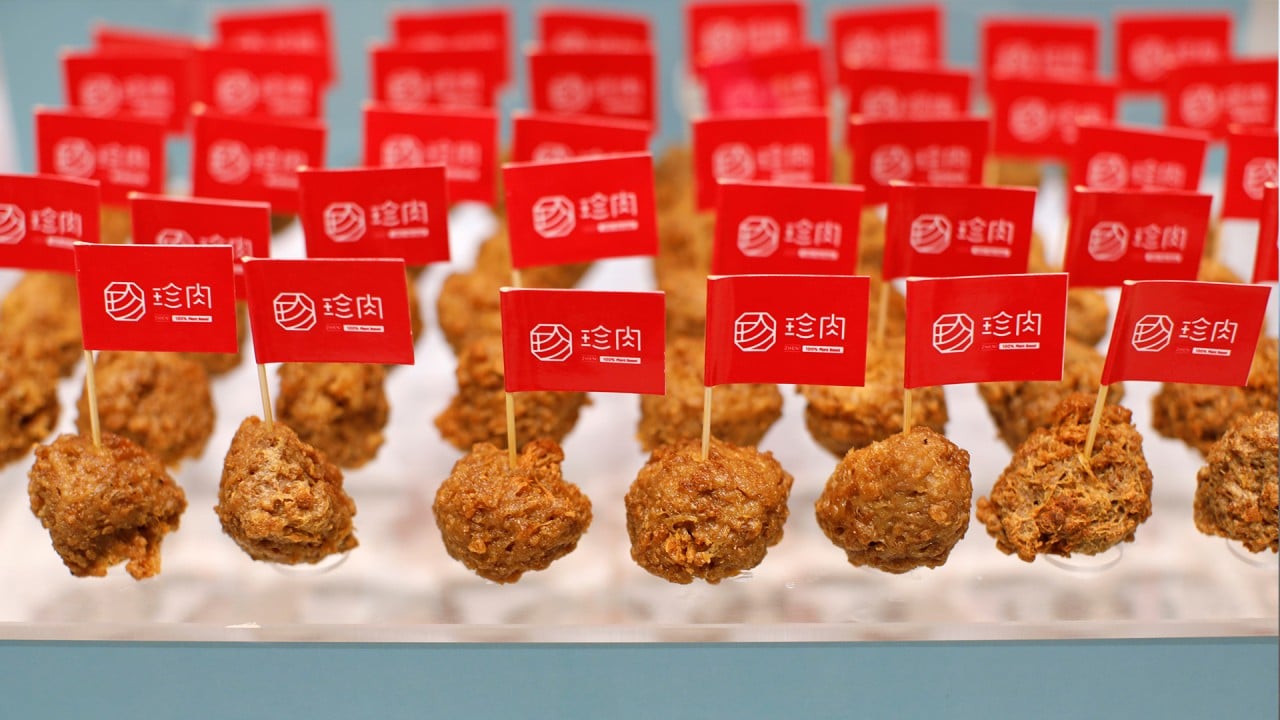
How China plans to lead the world in sustainable food with latest five-year agricultural development plan
- Lab-grown meat and plant-based eggs among food production technologies that will be supported to cut reliance on overseas know-how
- Inclusion of cultivated meat in the five-year plan will drive more research funding and investment in the nascent industry, says Ziliang Yang of start-up CellX
China’s decision to include alternative proteins in its five-year agricultural development plan shows Beijing’s desire to nurture home-grown technology to ensure sustainable food supply, industry watchers say.
Lab-grown meat, plant-based eggs and recombinant protein production are among the food production technologies that will be supported, according to the 2021-25 blueprint published by the Ministry of Agriculture and Rural Affairs last month. Recombinant protein production, also known as precision fermentation, can “programme” microorganisms to manufacture dairy and meat from animal or plant cells.
“By 2025, [we] strive to make major progress on indigenous innovations in various areas currently subject to high reliance on foreign technology,” the document said, adding it aims to build a “low carbon, sustainable, smart and integrated” agricultural system.
The policy is one of the most important in the history of alternative protein innovation that would open up “massive opportunities”, said Andrew Noyes, head of global communications at San Francisco-based start-up Eat Just, which sells mung-bean based egg substitutes in China.
China needs to feed its 1.4 billion people, around one fifth of the world’s population. Ensuring food security has become a more urgent political priority for Beijing’s new development strategy and cut reliance on imports.
Food consumption is also rising because of changing lifestyles and diets. China’s per capita beef consumption is projected to rise 13.3 per cent to 4kg by 2029 from 2017, according to the Organization for Economic Cooperation Development and the Food and Agriculture Organization (FAO). Per capita poultry consumption is expected to grow 20.5 per cent to 14.2kg and pork by 1.2 per cent to 31kg.
China imported around 30 per cent of beef, 9 per cent of pork and 3 per cent of chicken meat consumed in the country last year, according to the US Department of Agriculture.
“In recent years, China’s conventional meat industry has faced multiple supply-side crises, including the African swine fever outbreak that led to a discomforting reliance on imports,” said Mirte Gosker, acting managing director for Asia-Pacific at alternative protein think tank The Good Food Institute, in a written response.
Inclusion of cultivated meat in the five-year plan will drive more research funding, investment, local government support and attract talent to join the nascent industry, said Ziliang Yang, co-founder and CEO of Shanghai-based start-up CellX.
“Cellular agriculture is a green technology that will help the traditional agriculture sector transition from high to low carbon production,” he said. “China has missed [being a leader in] technologies like genetic modified soy bean and microchips, we can’t afford to miss it again.”
China has the capability to supply domestic and overseas markets, he said, adding four companies and two university labs were currently working on challenges including reducing costs and seeking regulatory approval.
One way the government can help is to allow cultivated meat companies to claim and sell carbon credits on greenhouse gases, which their products help avoid by replacing farmed meat production, he added.
If cultivated meat production can be slashed to levels similar to farmed meat, it can help cut the carbon footprint of livestock farming, which accounts for 14.5 per cent of global carbon emissions, according to FAO.
When low carbon energy is used, cultivated meat has a substantially lower environmental impact – including land use, water use and waste – than farmed chicken, pork and beef, according to a study sponsored by The Good Food Institute and Belgium-based Global Action in the Interest of Animals last year.
Separately, a survey by the Credit Suisse Research Institute released on February 1 showed that nearly two-thirds of respondents in China were willing to try cultivated meat if it tastes the same as regular meat.
It was the highest among the 10 nations surveyed, which included 10,000 respondents in the 16 to 40 age group. In the US, the figure stood at over 25 per cent and under 10 per cent in both France and Germany. Nearly 60 per cent in Brazil and over 40 per cent in India were also inclined to try cultivated meat.




